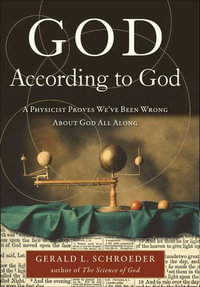If there is a central conceptual framework that has reliably borne the weight of modern physics as it ascends into the twenty-first century, it is the framework of quantum mechanics. Because of its enduring stability in experimental application, physics has today reached heights that not only inspire wonder, but arguably exceed the limits of intuitive vision, if not intuitive comprehension. For many physicists and philosophers, however, the currently fashionable tendency toward exotic interpretation of the theoretical formalism is recognized not as a mark of ascent for the tower of physics, but rather an indicator of sway—one that must be dampened rather than encouraged if practical progress is to continue.
In this unique two-part volume, designed to be comprehensible to both specialists and non-specialists, the authors chart out a pathway forward by identifying the central deficiency in most interpretations of quantum mechanics: That in its conventional, metrical depiction of extension, inherited from the Enlightenment, objects are characterized as fundamental to relations—i.e., such that relations presuppose objects but objects do not presuppose relations. The authors, by contrast, argue that quantum mechanics exemplifies the fact that physical extensiveness is fundamentally topological rather than metrical, with its proper logico-mathematical framework being category theoretic rather than set theoretic.
By this thesis, extensiveness fundamentally entails not only relations of objects, but also relations of relations. Thus, the fundamental quanta of quantum physics are properly defined as units of logico-physical relation rather than merely units of physical relata as is the current convention. Objects are always understood as relata, and likewise relations are always understood objectively. In this way, objects and relations are coherently defined as mutually implicative. The conventional notion of a history as “a story about fundamental objects” is thereby reversed, such that the classical “objects” become the story by which we understand physical systems that are fundamentally histories of quantum events.
These are just a few of the novel critical claims explored in this volume—claims whose exemplification in quantum mechanics will, the authors argue, serve more broadly as foundational principles for the philosophy of nature as it evolves through the twenty-first century and beyond.
Industry Reviews
One of the driving contentions in modern physics has been the inability to reconcile the dominance of classical thought in the theory of relativity with the indeterminate nature of quantum mechanics. Some would argue that one such attempt at a compromise had arrived in the form of quantum field theories, with multiple ideas for resolving the asymmetrical features between relativity and ordinary quantum mechanics. Here, Epperson and Zafiris (both, California State Univ., Sacramento) decide to return to ordinary quantum mechanics and propose sheaf theory, a theory that grew out of the abstract algebra of topology and set theory, as a solution to the stubborn paradoxes found in quantization attempts. They then compare the theory's interpretive value to the category scheme found in Whitehead's Process and Reality (1929). Epperson's earlier work, Quantum Mechanics and the Philosophy of Alfred North Whitehead (2004), is a good predecessor to the current book. The authors begin with the famous 1935 paper on quantum theory and reality by Einstein, Podolsky, and Rosen. . . . Part of the 'Contemporary Whitehead Studies' series. Summing Up: Recommended. Graduate students and researchers/faculty.

























